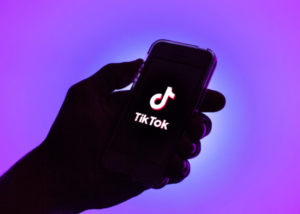We take a weekly look at mobile and tech stories from around the world. Headlines include… Apple’s U.S. Manufacturing Dream Faces Stark Reality, Console Prices Set to Jump 30% as Tariffs Bite, India’s Rise in Global Smartphone Production and much more… Alternatively listen On MEF Radio.

Apple’s U.S. Manufacturing Dream Faces Stark Reality: iPhones Stay in Asia
Guardian
Trump’s dream of U.S.-built iPhones is hitting a hard reality. “It’ s a no starter”, stated the company. Despite $500 billion in promised domestic investment and pressure from the White House, Apple is unlikely to shift iPhone production stateside, according to Bloomberg. Why? America lacks the scale, skilled labor, and supplier networks that China—and now increasingly, India—offer.
Bank of America analysts warned that iPhone prices in the US could soar by 25% due to rising labor costs, even if Apple moves assembly to domestic facilities. The bulk of parts needed for manufacturing would still come from China, and with potential reciprocal tariffs, the total cost of producing an iPhone could rise by as much as 90%. For mobile ecosystems, this cements Asia’s dominance as the engine behind smartphone hardware. As tariffs bite, Apple’s India pivot signals where future supply chains—and possibly innovation hubs—for global mobile markets are heading.
Read more…

Console Prices Set to Jump 30% as Tariffs Bite, Shifting Focus to Mobile Gaming
Tech In Asia
Gamers in the U.S. may soon shell out nearly $600 for a Nintendo Switch 2 or Sony PS5 bundle, according to Bloomberg Intelligence.
That’s thanks to steep tariffs on Chinese-made electronics, which could hike console prices by up to 30%.
For mobile ecosystems, it’s a big signal: rising console costs may push more users to mobile-first gaming experiences, where titles are cheaper and updates faster.
While Nintendo scrambles to reroute shipments from Vietnam, mobile-native developers — from Roblox to Genshin Impact — could cash in on price-sensitive players staying off the hardware upgrade path.
Read More…

India’s Rise in Global Smartphone Production: Apple’s Big Play in Southeast Asia
Reuters
Apple has chartered cargo planes to ship 600 tonnes of iPhones from India to the US. since March, Reuters reported. The company has used six cargo jets to send over 1.5 million iPhones, working with airport officials to speed up customs clearance, according to the wire service.
This comes as Apple shifts more production to India, aiming for a 20% increase in local output. Apple significantly boosted iPhone production in India in the last fiscal year, exporting over $14 billion worth of devices as part of its shift away from China. Supported by Indian subsidies, companies like Foxconn and Tata Group have ramped up local assembly, contributing to a 54% surge in exports. The move reflects a broader trend of diversifying supply chains to Southeast Asia, positioning India as a key player in the global smartphone market and strengthening its role in Apple’s global strategy.
Read more…

TikTok Drives ByteDance’s $155B Revenue Surge, Powers Shift to Mobile First
Tech In Asia
ByteDance surged 29% to $155 billion in 2024 revenue — and it wasn’t China doing the heavy lifting. It was TikTok. The short-video app drove a 63% jump in international sales, now making up a quarter of ByteDance’s total. That’s a big deal for mobile ecosystems, as TikTok increasingly shapes advertising, creator income, and even mobile e-commerce. But trouble brews: U.S. regulators have given ByteDance 75 days to divest TikTok or face a ban.
Amazon and AppLovin are circling with bids — the winner could instantly become a mobile video powerhouse.All this as ByteDance eyes AI tools to deepen app stickiness.
Read more…

Commission sets course for Europe’s AI leadership with an ambitious AI Continent Action Plan
EC
The EU is betting big on AI by launching a network of gigafactories under its AI Continent Action Plan. These cutting-edge facilities will each house around 100,000 of the latest AI chips—four times current norms—to help develop advanced models and catch up with the U.S. and China. €20 of the €200 billion in pledged investments and efforts to triple data center capacity will be devoted to the five new plants.
The bloc is not only boosting AI but also strengthening its mobile ecosystem. Enhanced infrastructure will drive lower latency and faster connectivity, paving the way for a more competitive, integrated digital future in Europe.
Read more…

Andy Jassy Calls Generative AI Crucial for Amazon’s Future, With 1,000+ AI Projects in the Works”
About amazon
Amazon CEO Andy Jassy says generative AI is poised to reinvent virtually every customer experience, calling it central to Amazon’s next phase of growth. In his annual letter to shareholders, Jassy emphasized that over 1,000 AI applications are being developed across the company—spanning shopping, entertainment, healthcare, home devices, and more.
He warned that companies failing to integrate intelligent models into their customer experience risk falling behind. While AI’s full impact may take time, he said its pace rivals the fastest tech revolutions in history. He also linked AI innovation to the company’s recent return-to-office mandate.
Read More…

Meta ups child safety measures across trio of apps
Mobile World Live
Meta Platforms is introducing new safety measures for teenagers on Instagram, Facebook, and Messenger as part of its ongoing efforts to enhance online child protection. For Instagram users under 16, live broadcasting will be disabled by default, and they will no longer be able to turn off the image blur feature that detects potential nudity in direct messages. These settings can only be changed with parental permission. In addition, Meta is rolling out restricted versions of Facebook and Messenger accounts for teenagers, similar to its existing Teen Accounts on Instagram. These accounts come with preset limitations aimed at ensuring safer online interactions. Users under 18 automatically receive Teen Accounts, while those under 16 need parental consent to modify related safety settings. Meta noted that since implementing these protections, 97 percent of users aged 13 to 15 have kept the restrictions in place, with strong parental support for the measures. The latest updates are expected to take effect in the coming months.
Read More…





